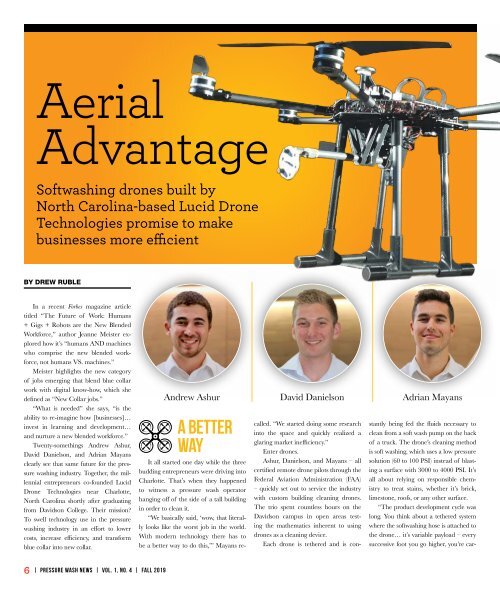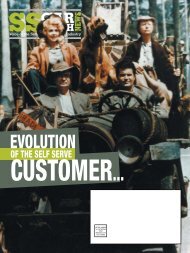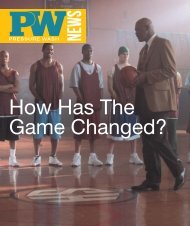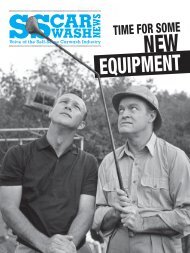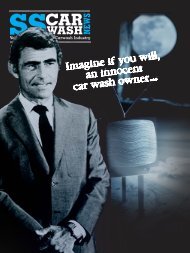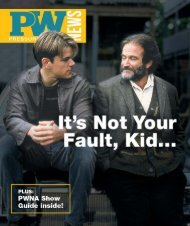You also want an ePaper? Increase the reach of your titles
YUMPU automatically turns print PDFs into web optimized ePapers that Google loves.
Aerial<br />
Advantage<br />
Softwashing drones built by<br />
North Carolina-based Lucid Drone<br />
Technologies promise to make<br />
businesses more efficient<br />
BY DREW RUBLE<br />
In a recent Forbes magazine article<br />
titled “The Future of Work: Humans<br />
+ Gigs + Robots are the New Blended<br />
Workforce,” author Jeanne Meister explored<br />
how it’s “humans AND machines<br />
who comprise the new blended workforce,<br />
not humans VS. machines.”<br />
Meister highlights the new category<br />
of jobs emerging that blend blue collar<br />
work with digital know-how, which she<br />
defined as “New Collar jobs.”<br />
“What is needed” she says, “is the<br />
ability to re-imagine how [businesses]…<br />
invest in learning and development…<br />
and nurture a new blended workforce.”<br />
Twenty-somethings Andrew Ashur,<br />
David Danielson, and Adrian Mayans<br />
clearly see that same future for the pressure<br />
washing industry. Together, the millennial<br />
entrepreneurs co-founded Lucid<br />
Drone Technologies near Charlotte,<br />
North Carolina shortly after graduating<br />
from Davidson College. Their mission?<br />
To swell technology use in the pressure<br />
washing industry in an effort to lower<br />
costs, increase efficiency, and transform<br />
blue collar into new collar.<br />
Andrew Ashur David Danielson Adrian Mayans<br />
A BETTER<br />
WAY<br />
It all started one day while the three<br />
budding entrepreneurs were driving into<br />
Charlotte. That’s when they happened<br />
to witness a pressure wash operator<br />
hanging off of the side of a tall building<br />
in order to clean it.<br />
“We basically said, ‘wow, that literally<br />
looks like the worst job in the world.<br />
With modern technology there has to<br />
be a better way to do this,’” Mayans recalled.<br />
“We started doing some research<br />
into the space and quickly realized a<br />
glaring market inefficiency.”<br />
Enter drones.<br />
Ashur, Danielson, and Mayans – all<br />
certified remote drone pilots through the<br />
Federal Aviation Administration (FAA)<br />
– quickly set out to service the industry<br />
with custom building cleaning drones.<br />
The trio spent countless hours on the<br />
Davidson campus in open areas testing<br />
the mathematics inherent to using<br />
drones as a cleaning device.<br />
Each drone is tethered and is constantly<br />
being fed the fluids necessary to<br />
clean from a soft wash pump on the back<br />
of a truck. The drone’s cleaning method<br />
is soft washing, which uses a low pressure<br />
solution (60 to 100 PSI) instead of blasting<br />
a surface with 3000 to 4000 PSI. It’s<br />
all about relying on responsible chemistry<br />
to treat stains, whether it’s brick,<br />
limestone, roofs, or any other surface.<br />
“The product development cycle was<br />
long. You think about a tethered system<br />
where the softwashing hose is attached to<br />
the drone… it’s variable payload – every<br />
successive foot you go higher, you’re car-<br />
6 | PRESSURE WASH NEWS | VOL. 1, NO. 4 | FALL <strong>2019</strong>


